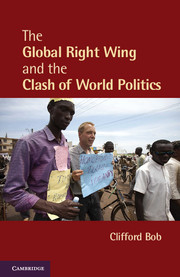6 - Battlefield Brazil
National Disarmament and International Activism
Published online by Cambridge University Press: 05 June 2012
Summary
Nelson Mandela was furious. Without permission, his picture had appeared in a Brazilian television commercial attacking the country's latest proposal to fight gun crime – a citizen referendum to ban firearms sales. The nationally broadcast advertisement warned that Brazilians would put their liberties at risk by supporting “disarmament” in the October 2005 vote. But the South African freedom fighter was having none of it. With apartheid's end, Mandela had become a staunch gun control proponent – although in 1961 he had founded the African National Congress's armed wing. In conjunction with Brazil's internationally supported “Yes campaign” for disarmament, his lawyers denounced the “outrageous cooptation of Nelson Mandela's image.” They threatened to sue Brazil's pro-gun/anti-referendum campaigners, attacking the ad as “incorrect, improper and illegal.”
The “No campaign” had its own overseas muscle, however, America's National Rifle Association (NRA), Canada's National Firearms Association (NFA), and other members of the World Forum on the Future of Sport Shooting Activities (WFSA). They supplied the nation's small gun rights movement with strategies, ideas, and messages. Most powerfully, they urged the activists to stress a human rights argument: that Brazilians must preserve their rights to self-defense and to possess firearms. At the beginning of the referendum fight, the disarmament side had high hopes. The country's president, legislature, major media, and Catholic Church all backed it. IANSA provided aid and encouragement. In the summer of 2005, polls estimated about 80 percent popular support. In the campaign's final weeks, however, the tide shifted as advertisements such as the Mandela one reached the electorate. The result was resounding and pervasive. Both urban and rural areas voted against the proposal, with the No campaign winning by 64 percent to 36 percent.
- Type
- Chapter
- Information
- The Global Right Wing and the Clash of World Politics , pp. 147 - 182Publisher: Cambridge University PressPrint publication year: 2012

